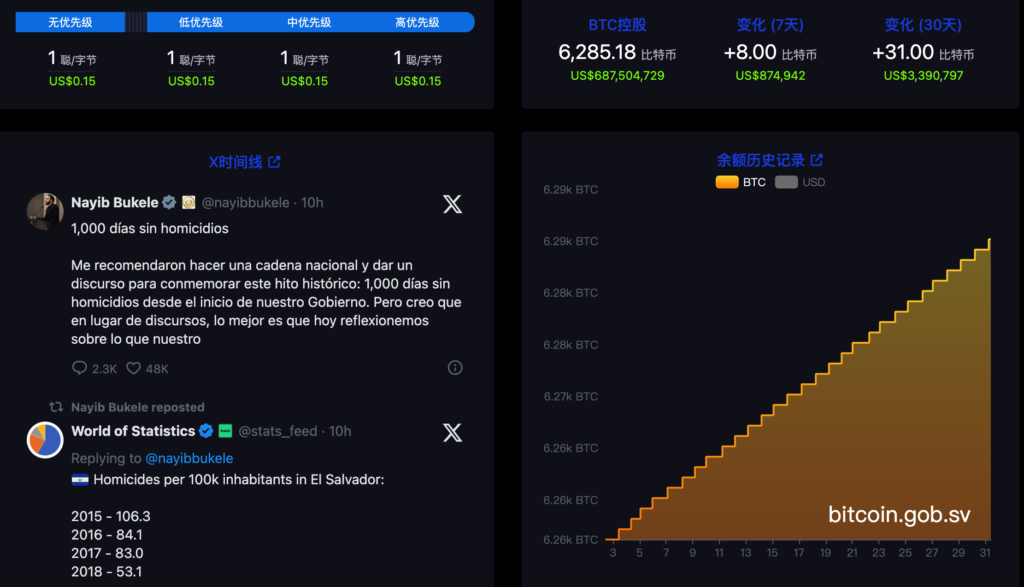El Salvadoran officials announced on the 30th that all of the Bitcoin previously stored in a single address has been transferred to 14 separate wallets. According to official data , El Salvador currently holds 6,285 BTC, valued at approximately $686 million.
The El Salvador Bitcoin Office stated that the design of dividing funds into "a maximum of 500 per wallet" is intended to mitigate the risks posed by future quantum computing. According to Mempool.space , 14 new addresses received the funds on Friday, and on-chain data is publicly traceable.

Quantum considerations behind "dispersion"
We know that the security foundation of the Bitcoin network is elliptic curve cryptography. When a transaction is made, the public key is briefly exposed. In theory, if a quantum computer could execute a method such as Shor's algorithm, it could potentially deduced the private key from the public key, potentially allowing the user to seize the assets. The El Salvador Bitcoin Office stated:
"By breaking funds into smaller amounts, the impact of a potential quantum attack can be minimized."
In response to outside concerns about quantum computers, MicroStrategy founder Michael Saylor emphasized in a previous interview that "even 3-bit keys have not been cracked by quantum computers" and that there is "still a long way to go" to break through 256 bits.
Demonstration effect on other sovereign entities
Since El Salvador included Bitcoin in its legal tender in 2021, it has been acting as a testing ground. This split action provides three key points for reference for other countries: first, adopting a multi-wallet structure to cut risks to a controllable range; second, maintaining transparency through public on-chain data and dashboards to reduce external concerns; third, laying out a "post-quantum" plan in advance to reserve time for possible protocol upgrades.
In conclusion, El Salvador's decision to "split" nearly 63,000 bitcoins isn't about scale, but rather a proactive approach to the risks of unknown technologies. It's unclear when quantum computers will truly threaten existing encryption systems, but in financial history, being ahead of the curve often means more protection than being foolproof.







